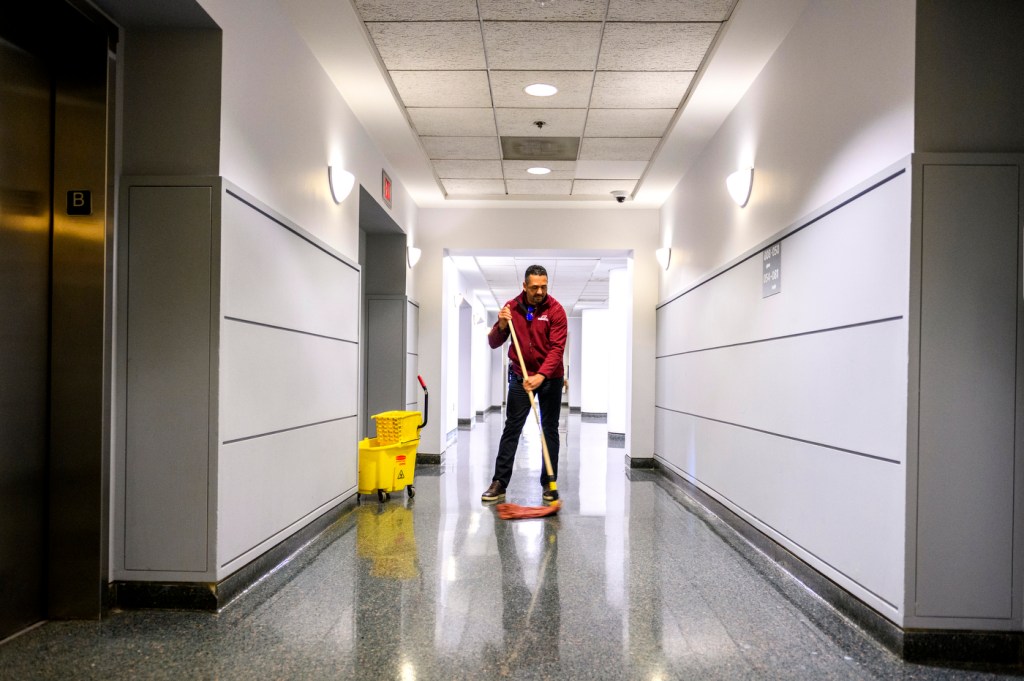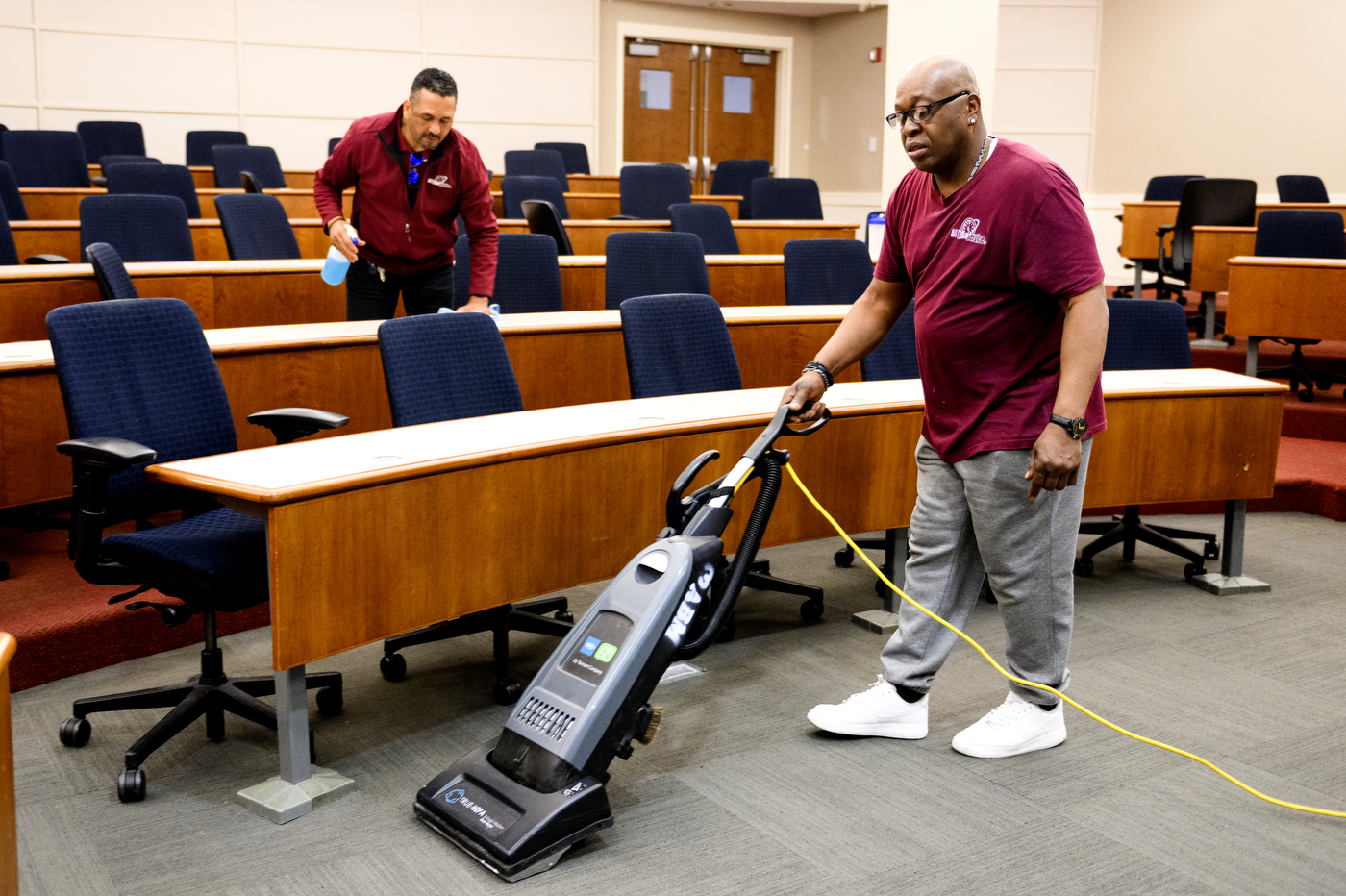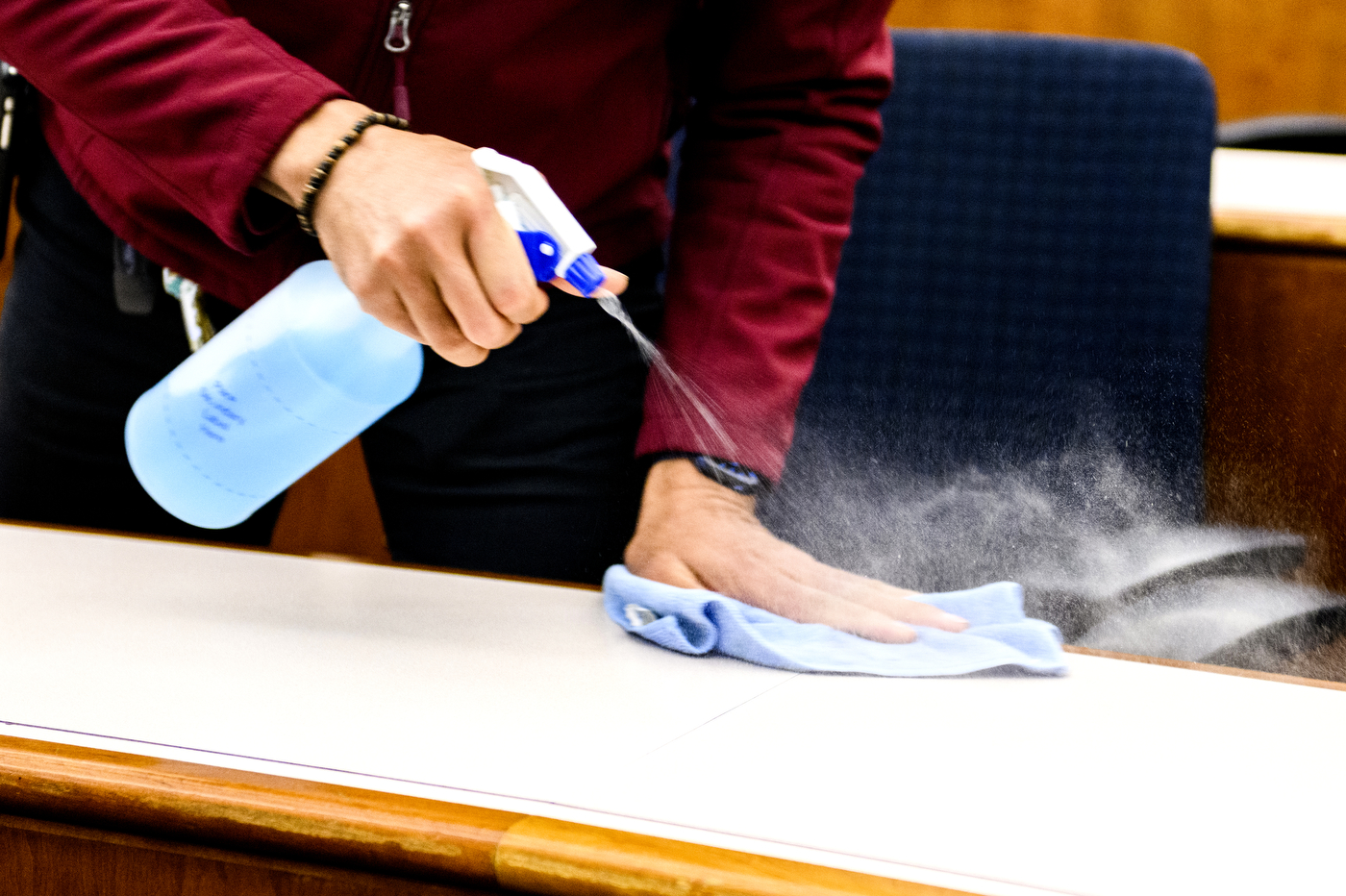Northeastern supports minority- and women-owned cleaning businesses in Boston

The 27 cleaners arrive on the Boston campus by 10 p.m. and work overnight. They and their employer, All Time Service, are benefiting from the expansion of a Northeastern program to invest in small businesses owned by minorities and women.
“I applaud Northeastern University for giving us an opportunity to grow and make things better for our people and for the people in our communities,” says Janet Peguero, president and CEO at All Time Service.
Peguero was 14 when she moved with her parents to the U.S., where she worked part-time as a cleaner to help with the family bills.

“As a cleaner I was not treated very well and with not very much respect,” Peguero says. “I used to tell my parents, ‘I want to have a cleaning company where people feel valued and respected, so that people feel like they are worth something.’”
When bidding went out last year on a new janitorial contract, Mark Boulter, Northeastern’s senior director of building services, wanted to expand the university’s reach into the community. Northeastern’s Planning, Real Estate and Facilities department broke the new contract into two pieces.
As part of the goal of investing in minority and women-owned business enterprises (MWBE), a larger 20% share of campus cleaning was awarded to long-time university partner DRB Facility Services, a minority-owned company in Boston led for 30 years by President and CEO Anthony A. Samuels. The remaining 80% went to another long-time cleaning partner, ABM Industries, a century-old industry leader in janitorial services (as well as in parking lots and garages) with more than 120,000 employees around the world. As part of the new agreement, Northeastern stipulated that 15% of ABM’s commitment be subcontracted to an MWBE.


ABM agreed—and raised the subcontract to 20% with its new partner All Time Service. That collaboration enabled Peguero to hire 28 new workers.
“It’s a wonderful opportunity for people from our communities to have a good paying job,” says Peguero, who employs 200 people overall.
Peguero says she had been trying for years to bid for cleaning contracts with universities and colleges in Boston.
“Northeastern is setting an example for the city,” Peguero says, who referred to her Northeastern partnership with ABM during a recent conversation she had with Boston Mayor Michelle Wu about creating opportunities for women.
“This has been a blessing for us because it gave us an opportunity not only to grow financially—with almost $2 million from this deal—but also to grow in other ways,” Peguero says.
ABM is providing Peguero’s company with management tools that she otherwise couldn’t afford, she says.
“They are a bigger company with systems and programs that they use for managing employees and communications, and they’re allowing us to use those resources,” Peguero says. “And because we are partners, ABM has given us an opportunity to obtain their prices [for equipment and supplies] which are—because they’re a national company—usually 15-to-20% less than what we pay.”
Boulter hopes Northeastern’s investment in MWBE will inspire other institutions to follow suit, especially following the COVID-19 pandemic.
“The pandemic really did a number on the cleaning industry because people stopped going to offices,” Boulter says. “And then the health and safety protocols and the threat of exposure to COVID made it mentally and physically exhausting for workers.”
Universities must be willing to adjust in order to partner with MWBE, says Rosanna Molinaro, director for procurement and contracts at Northeastern.
“There are what I call ‘barriers to entry’ for these small, local firms,” Molinaro says. “Higher-education institutions may have certain requirements for insurance or payment terms that can make it hard for them. From our position, we can help to reduce those barriers to entry; it does take a village of everybody buying in and thinking about it differently, strategically and equitably. I am so proud of the work that we’ve done here.”
Ian Thomsen is a Northeastern Global News reporter. Email him at i.thomsen@northeastern.edu. Follow him on Twitter @IanatNU.






